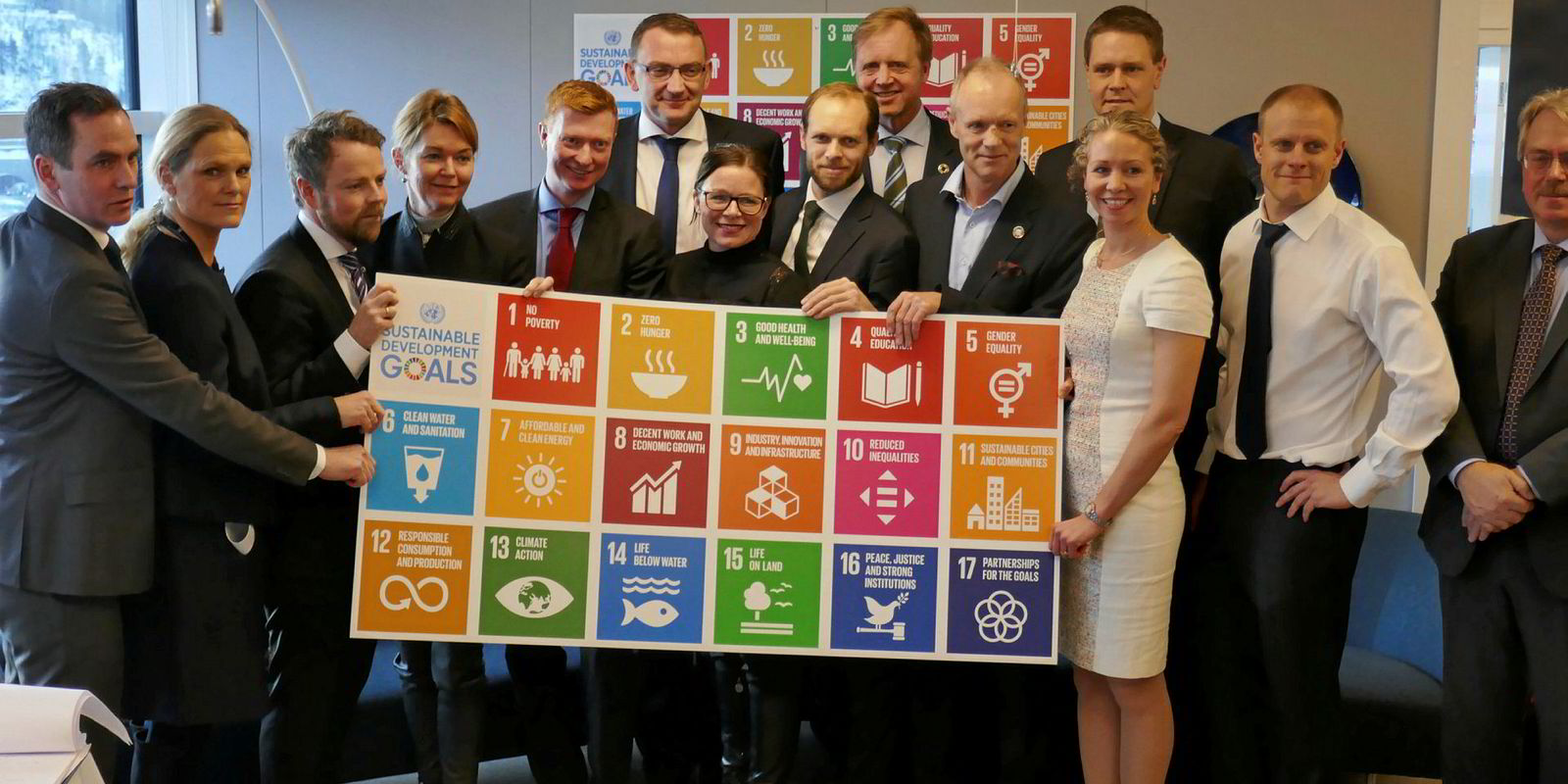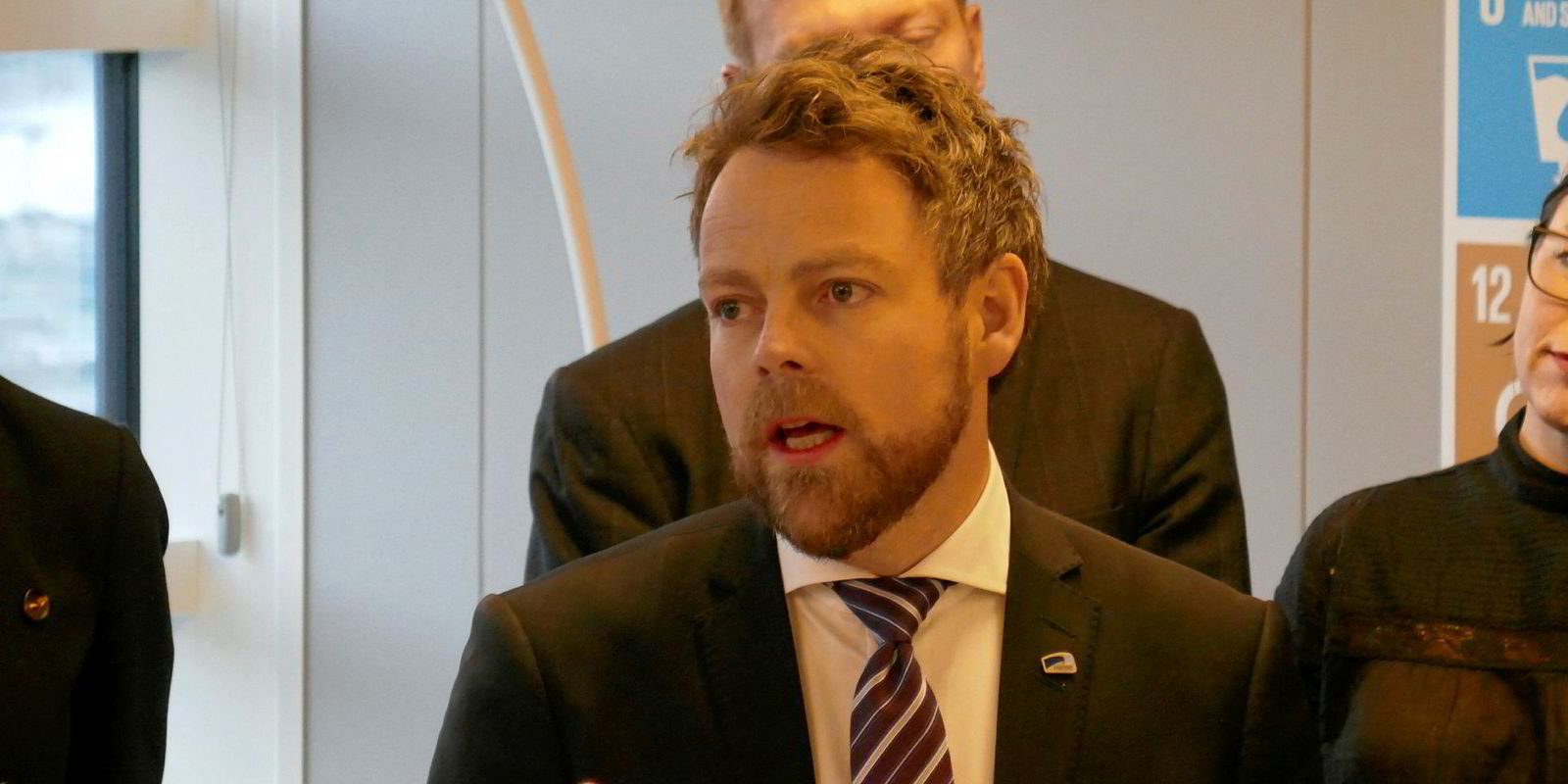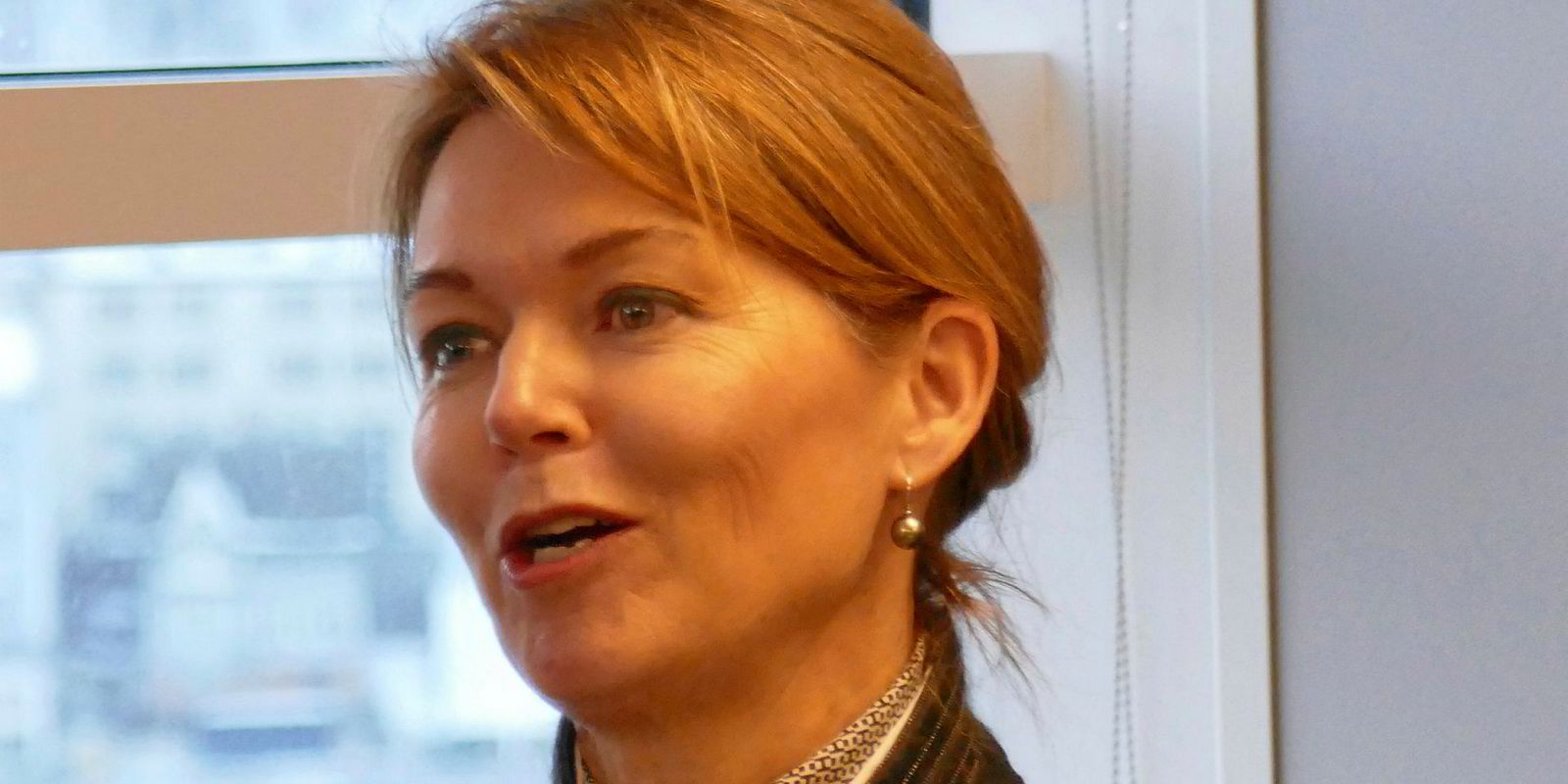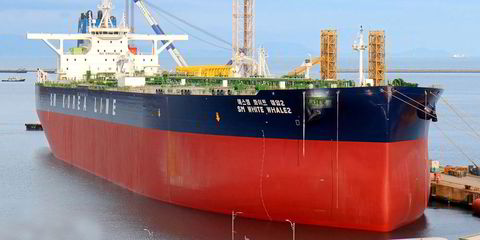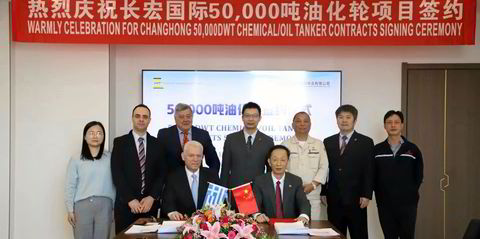The UN Global Compact’s new Business Action Platform for the Ocean is up and running with many well-known Norwegian companies taking the lead.
The Ocean Platform is seeking sustainable development across all marine industries as a means of meeting the UN’s goals for 2030 on human rights, labour, the environment and anti-corruption.
The Norwegian Shipowners’ Association (NSA) has been the main promoter of the platform for more than a year.
NSA chief executive Harald Solberg points to the OECD, which says ocean industries have the potential to double their contribution to global value creation by 2030.
Solberg said as a part of that goal, growth sustainability will remain a major issue for the NSA.
The NSA began spearheading the effort for the Ocean Platform more than one year ago, attracting the national government and fish-farming company Cermaq as the first main patrons. Other early supporters are DNB, DNV GL, Kongsberg Maritime and Aker BioMarine.
Seismic shipowner Petroleum Geo-Services is a participant in the Ocean Platform, while so far Grieg Group and Wilh Wilhelmsen are the only two deepsea shipping names on the list.
Solberg told TradeWinds that the platform’s roster just needs more time to grow.

“Yes, we need more shipowners, more food producers, more fishing and energy players and other companies to support this initiative. We will have to see what happens,” Solberg said.
“By working together, in close cooperation within the industry and with the authorities, I have great expectations for what this platform can achieve.”
From Wilhelmsen’s perspective, companies no longer have much of a choice about whether to seek sustainable growth.
Benedicte Teigen Gude, the diversified shipowner's senior vice president for human resources and communications, told TradeWinds that it should not be surprising to see her company joining the Ocean Platform early because “innovation is in our DNA”.
“In the long term, if we are not able to develop sustainable solutions, we will be out of business. This initiative is good because you have the combination of the governments and the businesses,” Gude said.
“Governments have the carrots and they have the sticks. They can put up frameworks but they don’t develop solutions. Companies develop the good solutions.
“Combining both business and government, combining commercial interests with sustainable initiatives, I think this is powerful for really making change happen.”

In the past, good corporate citizens took action but in a manner resembling philanthropy, Gude said, her point being that it was based on charitable spirit rather than profit. But these days, commercial interests and sustainable initiatives are going much more hand in hand, Gude said, as the Ocean Platform shows.
Linking the UN goals to actual commercial interests is important for getting stronger commitments from business.
“For us, this platform is all about allowing our industry to be able to contribute to sustainable global trade in the long term, so it just makes sense for a company like ours to be a part of this,” she said.
“Wilhelmsen would still develop sustainable solutions regardless, but this initiative actually puts our contribution into a framework, where we can see it making the world a better place.”
DNB — which recently combined ocean-related industries such as shipping, offshore energy and seafood, into one division — sees sustainability among clients as directly affecting its shareholders.
“Ocean industries represent one-third of our GDP. If we look at the stock exchange, about 50% of the market cap also comes from ocean industries,” said Kaj-Martin Georgsen, DNB director of corporate responsibility and business policy.
“As a bank, our approach to ocean industries is that how a business does business is also our business. This is because we have to make sure we can be more robust and that we can also deal with sustainability issues,” Georgsen said.

“That is not only to contribute positively to society, as we should do, but also to create long-term value for our shareholders. That’s why we have also integrated our approach to ocean industries on one unit, as one of the first banks in the world to do so.”
Statoil was already a long-term member of the UN Global Compact before signing up as a sponsor of the new Ocean Platform.
From the petroleum industry’s side, ensuring safety and protecting the environment remain two aspects that underpin all offshore operations. This is as true for Statoil as it is for all oil companies these days.
But as a cutting-edge player in the petroleum industry, Statoil’s participation is also viewed as a way to transfer ocean technology.
“We believe that it is critical that partnerships and businesses are there to enable and be a part of the solutions and not part of the problem,” said Hedda Felin, Statoil senior vice president of international development and production.

Oslo-headquartered Cermaq, which was acquired for $1.4bn by Mitsubishi Corp in 2014, says it is eager to put its extensive R&D department to work in the Ocean Platform.
“We are very proud to be the first business partner for this initiative,” said Cermaq chief financial officer Thomas Palm.
“Ocean challenges must be solved through multi-stakeholder dialogue between governments, business, research institutions and civil society. And we believe the UN Global Compact provides an excellent arena for this dialogue.”
